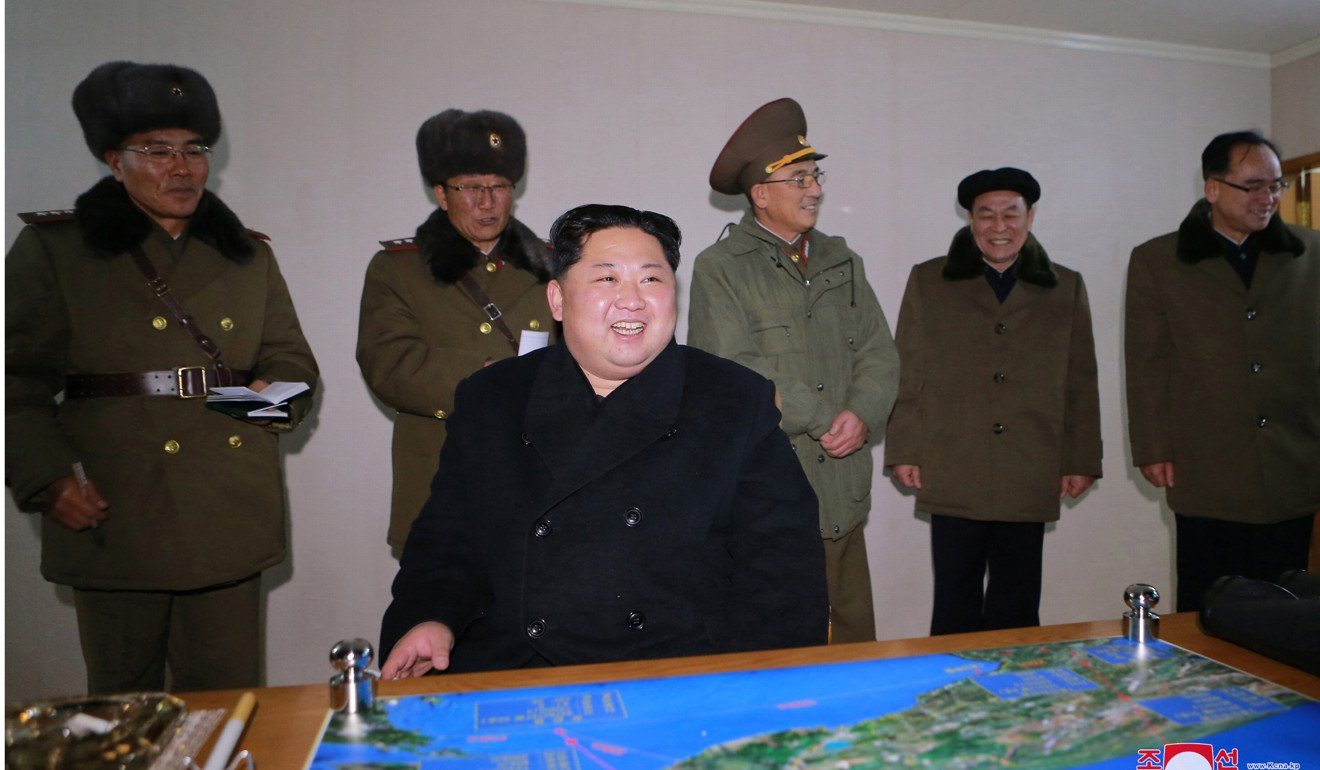
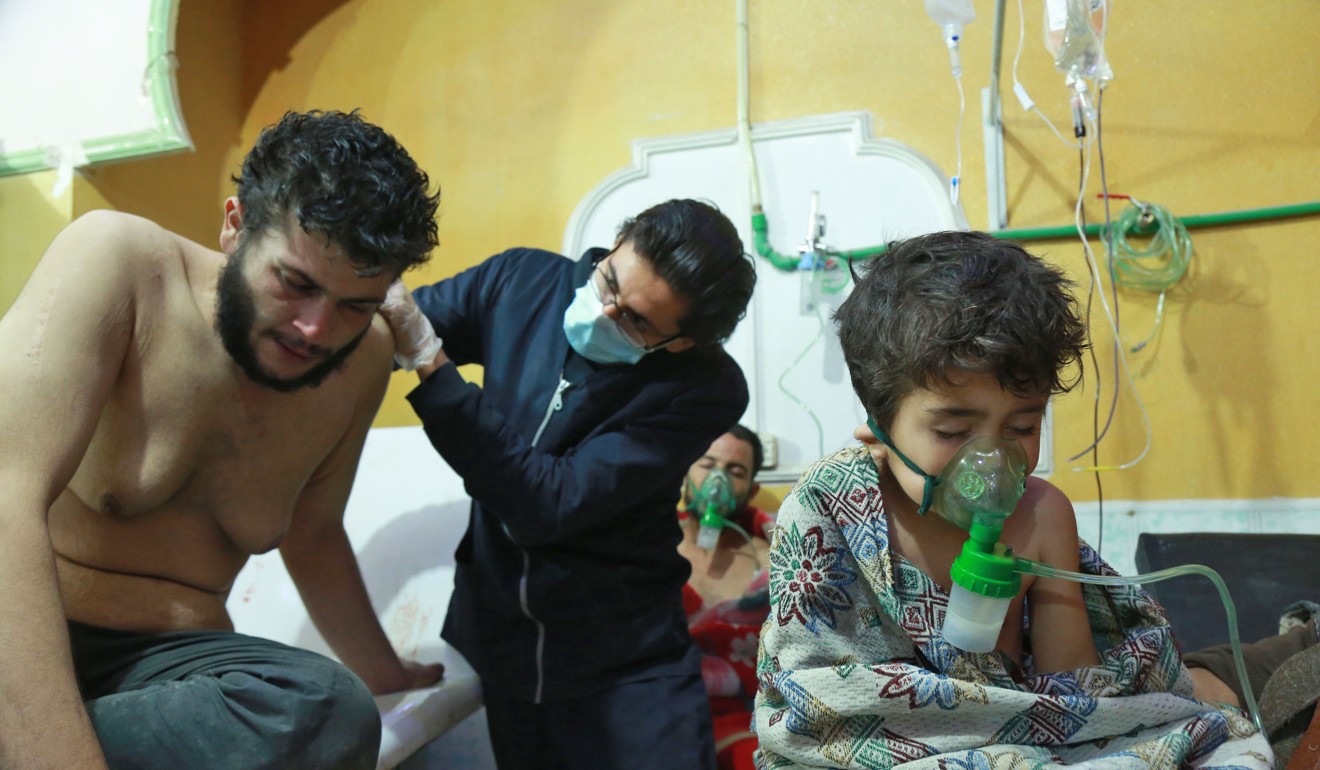
Pyongyang has sent dozens of shipments to arms makers in Syria, and North Korean experts visited three times in 2016, the UN report concludes
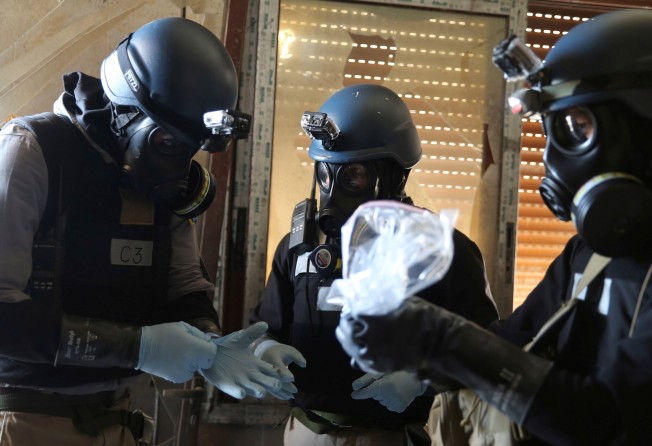
North Korea appears to have stepped up its covert assistance to a Syrian government agency responsible for producing that country’s chemical weapons and advanced missiles, a UN panel has concluded in a confidential report.
The technical aid from Pyongyang, which began more than a decade ago, included three visits by North Korean weapons experts in 2016, as well as 40 previously unknown shipments of specialised materials and equipment used in building chemical manufacturing plants, according to a draft of the report seen by The Washington Post.
The revelations underscore widely held concerns about North Korea’s willingness to market its most advanced weapons technology to foreign clients – including, in this instance, to a Syrian regime notorious for using chemical weapons to kill its citizens. Multiple UN investigations have linked President Bashar al-Assad’s forces to mass-casualty attacks on Syrian civilians using sarin, a banned chemical toxin.


“North Korea has a sordid history of supplying rogue states like Syria with weapons of mass destruction technology for cash,” Andrew C. Weber, formerly the top Pentagon official responsible for combating the proliferation of nuclear, chemical and biological weapons, said of the new findings. “Given its large and growing arsenal of nuclear, chemical and biological weapons and missile delivery systems, this is extremely dangerous.”
North Korea’s alleged aid to Syria is detailed in a 70-page report compiled by the UN Panel of Experts, a technical body that releases periodical assessments about compliance with UN resolutions, including trade sanctions imposed on Pyongyang.
The report, which has not been publicly released yet, describes ongoing efforts by North Korea to circumvent trade restrictions and sell banned military hardware and know-how to dozens of foreign clients, from the Middle East and North Africa to Latin America. Details about North Korea’s alleged shipments to Syria were first reported by The New York Times and Britain’s Express newspaper.
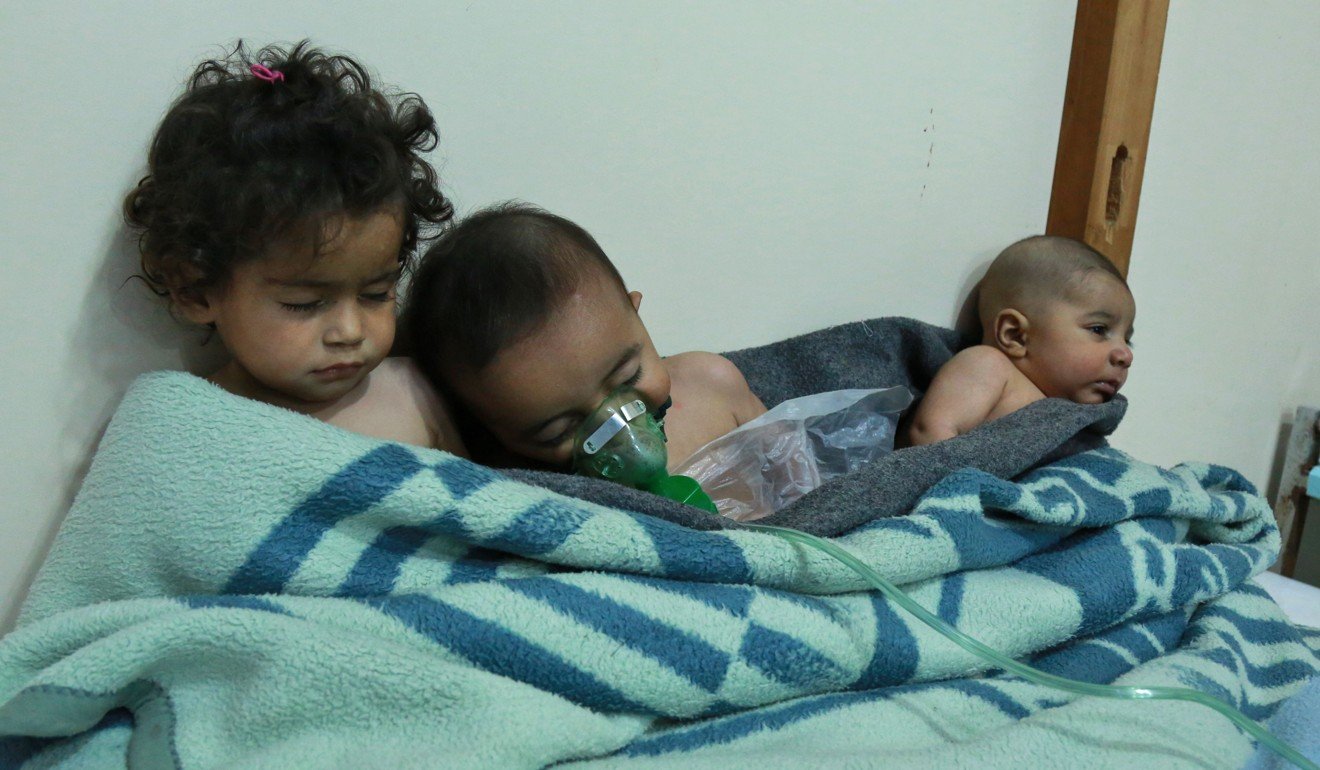
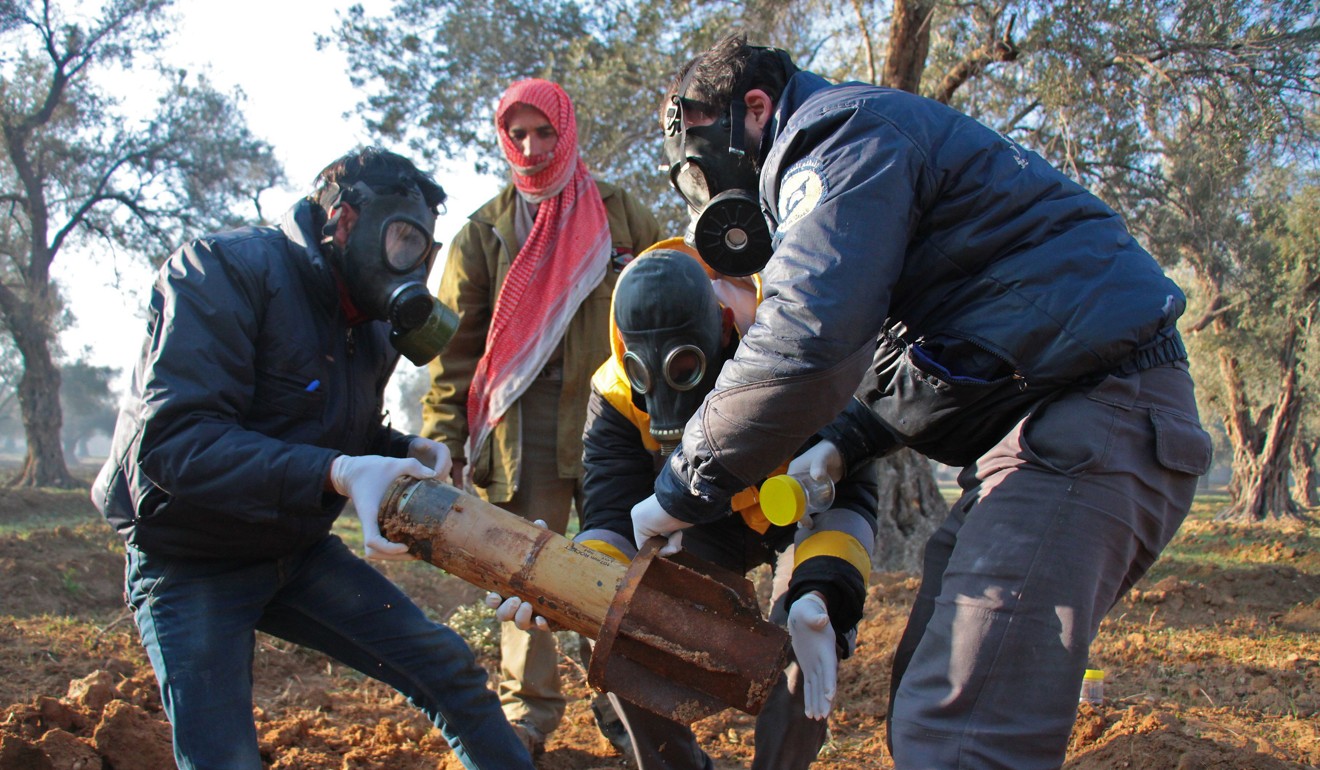
The UN Panel of Experts has previously accused North Korea of aiding Syria’s chemical-weapons programme, asserting in an August report that Pyongyang had secretly delivered gas masks and other protective gear to the Assad government. But the latest report suggests that the assistance was much broader, and included, for example, materials useful in rebuilding Syria’s damaged chemical weapons facilities.
“We’ve known about this activity for a long time, but the report shows that it’s bigger than we knew,” said a Western diplomat briefed on the panel’s findings who spoke on the condition of anonymity because the report has not been released.
Much of the covert aid appears to have been directed toward Syria’s Scientific Studies and Research Center, a government-run agency that employs thousands of scientists and technicians across several campuses in northern and central Syria. UN investigators have identified the centre as a primary research facility for the country’s chemical weapons and advanced missiles programme. Syria renounced chemical weapons and agreed to the supervised destruction of its declared chemical-weapons arsenal in 2013, but the Syrian military has continued to use small amounts of sarin and other toxins in the country’s civil war, apparently from hidden or reconstituted stocks.
Interdicted cargo seen by UN investigators in late 2016 and early 2017 included six shipping containers of acid-resistant tiles said to be capable of withstanding high temperatures and corrosive chemicals. Although not specifically banned under international sanctions, the North Korea-supplied tiles “can be used … for the interior walls of [a] chemical factory,” the report stated, citing the assessment of an unidentified UN member state that provided access to the seized cargo.
A billing of lading listed the shipper as a Chinese company, and the intended recipient as a Syrian firm regarded by Western intelligence agencies as a front company for the Syrian Scientific Studies and Research Centre. China, responding to queries from UN investigators, said it was unaware of any links between the cargo and blacklisted North Korean companies and individuals.
The report also describes shipments of corrosion-resistant valves and thermometers “known for use in chemical weapons programmes,” as well as visits to Syria by three delegations of North Korean technicians in 2016, including two groups of missiles experts.
Syria, in a statement to the U.N. panel, said there are “no DPRK technical companies in Syria,” referring to the Democratic People’s Republic of Korea, adding that the only North Korean citizens in the country were coaches and athletes “confined in the area of sports.”
Meanwhile, the departure of the State Department’s chief envoy on the Korean crisis delivered a fresh blow to US diplomatic efforts to end the stalemate over Pyongyang’s nuclear and missile tests. The retiring Yun, 63, is the special representative for North Korea policy and deputy assistant secretary for Korea and Japan, and has more than three decades of diplomatic experience.
Yun’s departure will leave another hole in US staffing on Korean issues. Washington has still not nominated an ambassador to South Korea, 13 months into the Trump administration. Victor Cha had been in the running for the job, but the administration abruptly scrapped his candidacy last month.
“This is my own personal decision,” Yun said. “Secretary [of State Rex] Tillerson has told me he appreciates my service and did not want me to go, but he accepts it reluctantly.”
State Department spokeswoman Heather Nauert confirmed that Tillerson had “reluctantly accepted” Yun’s decision and wished him well.